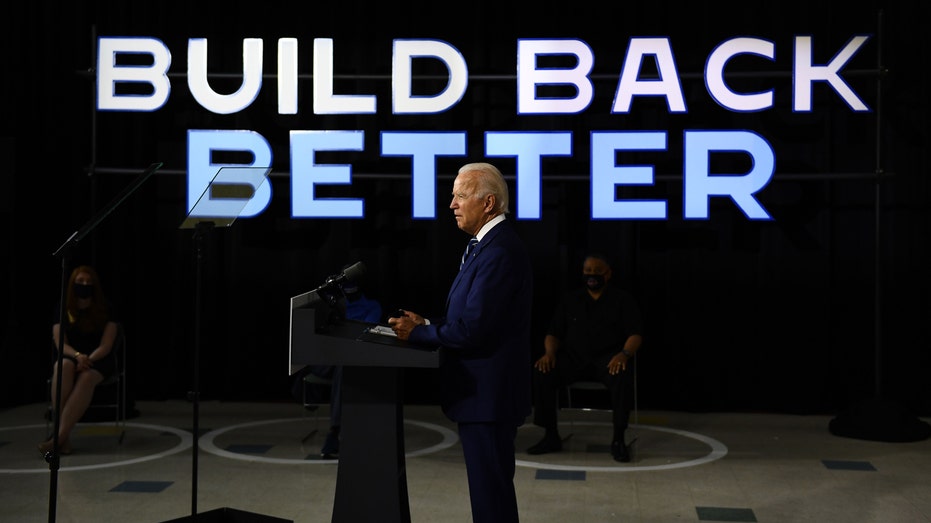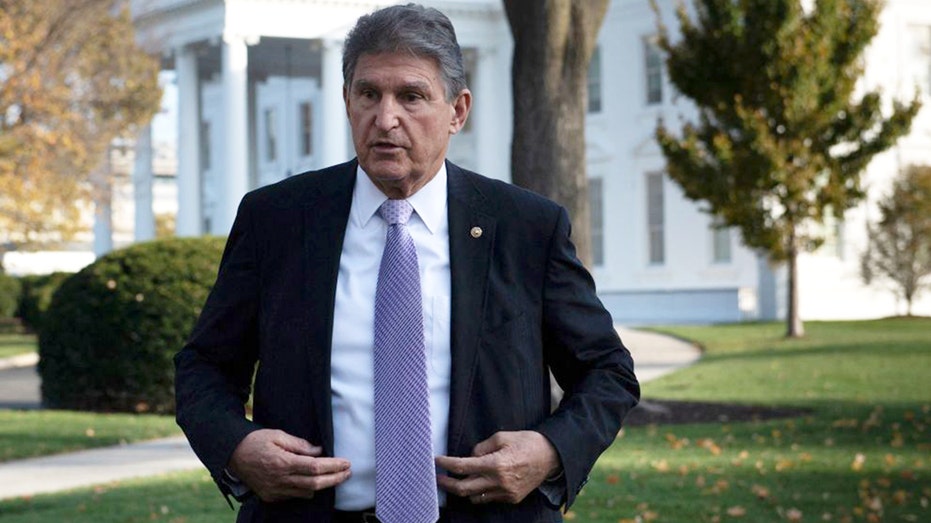Manchin suggests tax, policy changes he'd want in Biden's spending bill
Manchin: Spending bill should focus on repealing 2017 tax cuts
Schumer’s ‘bluffing’ on promises to hold vote on spending bill: Marc Short
Former Pence chief of staff Marc Short discusses Senate Majority Leader Chuck Schumer making promises to hold the vote on Biden’s spending bill.
Moderate Democrat Sen. Joe Manchin outlined some major changes to President Biden's massive spending bill that could elicit his support, one day after he abruptly torpedoed the $1.7 trillion social spending and climate package.
Speaking during a radio station interview in his home state of West Virginia, Manchin offered a blueprint to Biden and other Democratic leaders to potentially revive a narrow version of the tax-and-spending bill when Congress returns in January. He said the legislation should go through Senate committees in order to examine its economic effect and focus on rolling back the 2017 Trump tax cuts.
"The only reason I even voted to get on reconciliation was to fix the taxes so that everybody paid their fair share," Manchin said on West Virginia MetroNews, his first public response since he dealt a fatal blow to the Build Back Better bill. "The ultra-wealthy, corporations that weren't paying anything, everyone would pay their fair share."
BIDEN PITCHES REVAMPED MILLIONAIRES TAX, GLOBAL MINIMUM TO FUND SPENDING BILL
Although the spending bill included a number of changes to the tax code – including a 15% tax on companies' book income and a surcharge on ultra-millionaires – Biden had watered down the bulk of his proposed increases in order to placate Sen. Kyrsten Sinema, D-Ariz., who criticized the steep increases in corporate taxes, capital gains taxes and income taxes.

US Democratic presidential candidate Joe Biden speaks about on the third plank of his Build Back Better economic recovery plan for working families, on July 21, 2020, in New Castle, Delaware. (Photo by BRENDAN SMIALOWSKI/AFP via Getty Images / Getty Images)
The legislation would have kept the bulk of former President Trump's signature 2017 tax law intact.
Manchin also said the bill should truly lower the cost of a broad array of drugs. The House-passed Build Back Better bill attempted to address the issue of rising drug costs with a number of provisions, including allowing Medicare to negotiate certain drug prices with manufacturers and capping out-of-pocket costs for some prescription drugs for Medicare recipients at $2,000 a year.
"If you’re going to negotiate then negotiate. Don’t start picking and choosing and playing games," Manchin said.
Sinema – another key Democrat in the 50-50 Senate – has also opposed wider efforts to lower prescription drug costs.
Manchin also raised concerns about efforts to extend the boosted child tax credit, which provides low- and middle-income families with monthly installments worth up to $300 per child. He insisted the program needs to have work requirements as well as means-testing so that anyone earning more than $200,000 is not eligible for the money.

US Senator Joe Manchin III (D-WV) walks the grounds of the White House, November 18, 2021, in Washington, DC. (Photo by BRENDAN SMIALOWSKI/AFP via Getty Images) / Getty Images)
The American Rescue Plan, which Democrats passed in March without any GOP support, expanded the credit to $3,000 from $2,000 for the 2021 tax year. The first half was delivered in monthly payments from July to December with $300 for children under the age of six and $250 for those ages 6 to 17. The second half will be delivered as a lump sum when families file their 2021 tax returns in the spring.
The full tax credit goes to individuals earning $75,000 or less, married couples making $150,000 or less and a single parent filing as the head of household making up to $112,500.
GET FOX BUSINESS ON THE GO BY CLICKING HERE
A source familiar with the matter told FOX Business that Manchin and Biden spoke on the phone Sunday night, hours after the West Virginia Democrat told "Fox News Sunday" that he could no longer support the Build Back Better bill. The call suggests that despite heightened tensions between the president and Manchin, the two may consider resuming negotiations on the spending bill.
If Biden had succeeded in passing the proposal, Congress would have approved a staggering $5 trillion in spending in the less than one year since he took office, an unprecedented level. The nation's debt level is already at a historic high of $29 trillion and is on track to surpass $30 trillion.





















